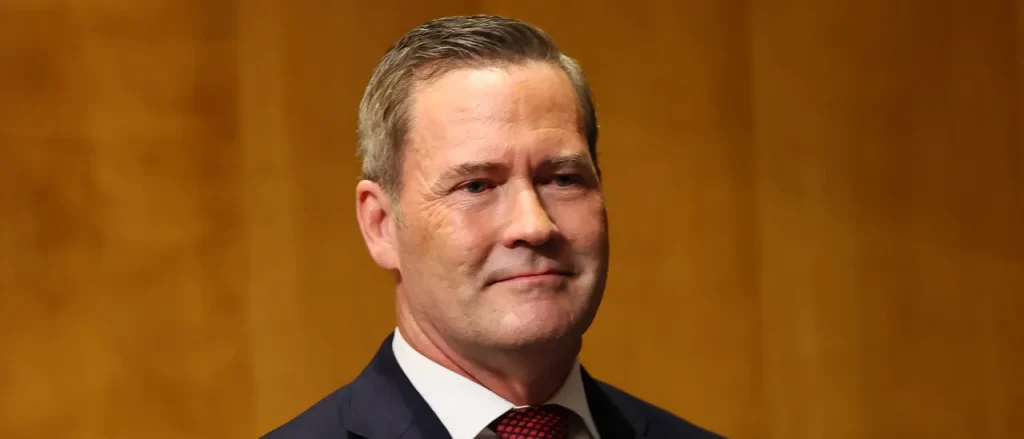Mike Waltz Confirmed to the U.N.: A Clear Turn Toward American Assertiveness
The Senate confirmed Mike Waltz, President Donald Trump’s former national security adviser, to be the U.S. ambassador to the United Nations on Friday afternoon. The upper chamber approved Waltz’s confirmation in a near party-line vote of 47 to 43, just in time for the UN General Assembly gathering in New York City which is now underway. This pick signals a tougher, more assertive American posture at the world body.
Republicans see this as a win for common sense and American strength at the United Nations. Waltz comes from a conservative, national security background and carries the credibility of a veteran into diplomacy. That military and policy experience matters when the U.S. needs a voice that commands respect and does not apologize for American interests.
The United Nations has a long history of talking more than acting, and that has frustrated those who believe U.S. power should be used wisely and decisively. Waltz has already made clear he will prioritize accountability and results over empty multilateral rhetoric. The job will require pushing back against agencies and programs that drift from American priorities.
Immediate priorities for Waltz are obvious: confront strategic competitors, stand firmly with allies who share our values, and demand efficiency and transparency from the UN bureaucracy. China and Russia will be at the top of the list because they use the international system to advance their authoritarian models. Waltz will be expected to call that out plainly and consistently.
The near party-line vote underscores the deep partisan divides in Washington, but Republicans who backed Waltz argue that national security should not be subject to endless equivocation. Supporters say he can translate tough policy stances into diplomatic leverage. Opponents will noisily object, but the practical test will be whether his leadership improves American outcomes at the UN.
Waltz’s style is direct and unapologetic, traits many conservatives want representing the country on the global stage. He is known for plain talk on threats and practical solutions rather than performative statements. That approach can unsettle career diplomats used to more cautious language, but it can also force clearer decisions.
The timing could not be more important. With the General Assembly meeting, the U.S. has a chance to reset the narrative about its role and obligations in the world. Waltz’s presence opens a window to push for stronger deterrence against malign actors and for better burden sharing among allies. If he moves quickly, he can shape debates before they calcify.
Expect Waltz to demand transparency from UN agencies that take U.S. dollars and then stray into political activism. Conservatives will push him to link funding to measurable outcomes and to clamp down on programs that contradict American law or policy. That kind of fiscal discipline is popular with voters who want taxpayer money used effectively.
Critics will label his approach confrontational, but Republicans counter that confrontation beats complacency when national security is at stake. Waltz is likely to trade diplomatic niceties for clear lines about red lines. For many in his party, that clarity is preferable to the storybook diplomacy that yields no change on the ground.
Budget and reform will be central themes. The U.N. budget has ballooned while effectiveness is often lacking, and Waltz can press for audits and reforms that make spending accountable. Cutting wasteful or politicized programs will be framed not as isolationism but as fiscal responsibility and strategic focus.
On alliances, Waltz will balance reassurance with demands for fair burden sharing and reciprocal commitments. Allies who pull their weight will get solid U.S. backing, while those who free ride will face tough conversations. This transactional diplomacy is the Republican playbook for sustaining durable partnerships without subsidizing weakness.
Humanitarian issues will still matter under his watch, but Republicans expect aid to be channeled through effective partners and delivered without enabling hostile political agendas. The U.S. can lead relief efforts while ensuring the assistance does not prop up corrupt regimes or undermine allies. That is a pragmatic approach to compassion.
When it comes to Israel, Waltz will be unwavering in defending its security and pushing back against one-sided resolutions. He will argue for standing by an ally that shares democratic ideals against institutional bias at the UN. That stance will please conservatives who have long criticized U.N. hostility toward Israel.
China and Russia will face increased scrutiny of their behavior in global forums, including human rights abuses, economic coercion, and manipulation of multilateral institutions. Waltz is expected to spotlight these actions and work to block their efforts to reshape rules in ways that disadvantage democracies. That competition for the rules of the road is central to U.S. strategy now.
Messaging will be unapologetically patriotic, focused on defending American interests and promoting durable peace through strength. Waltz will have to translate combative rhetoric into diplomatic wins to justify the tougher posture, but Republicans believe that clarity and resolve pay off. The test will be whether he can convert principle into policy outcomes.
In short, Mike Waltz’s confirmation marks a clear shift toward a more assertive U.S. approach at the United Nations, prioritizing sovereignty, accountability, and results. His backers expect him to use American influence to demand fairness, confront bad actors, and reform a bloated bureaucracy. For voters worried about American decline, this nomination signals a refusal to accept business as usual at the world body.
